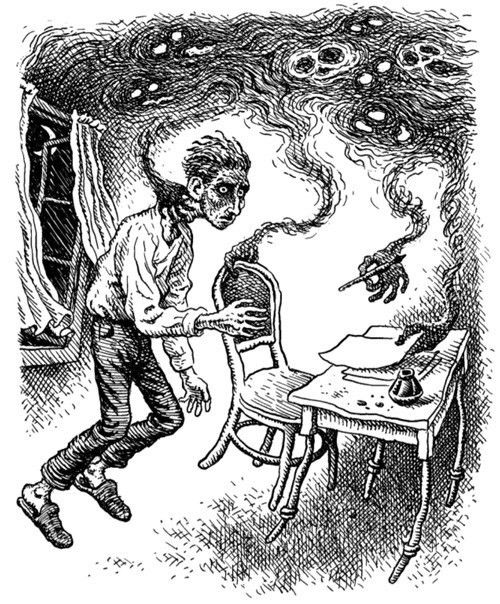The Work That Goes Into Working Unconventionally
I spent the last two years freelancing. I worked part-time with a lot of different companies. I ran my own businesses. I had a few side hustles. I started a podcast. It was all very millennial.
Unconventional work setups like mine are becoming an increasingly large share of the economy. Freelancing. Gig work. Part-time employment. Contracting. I joke, but it is, in a lot of ways, a distinctly millennial phenomenon. It has only become possible in the age of the internet. The YouTube sensation can make it without going to Hollywood and getting an agent. The solo blogger can cultivate a following that competes with mainstream media. The freelance developer can find work with companies on the other side of the world. The podcaster with an afternoon off can open an app and drive for Uber.
The whole phenomenon also jives with what people say about millennials. We value experiences. Freelancing affords us the freedom to work-from-wherever and have those experiences. You don’t have to be a digital nomad, creating content or shipping code from the beaches of Bali, to feel these benefits. The experience might be as simple as the pleasure of an impromptu afternoon run or a last-minute long weekend spent seeing parents.
It should come as no surprise that millennials — the generation that entered the workforce in the darkest hours of the recession — are so open to an entrepreneurial approach to work.
And yet there is something that doesn’t quite check out in all this.
After all, we millennials are the generation that gets stressed at the idea of going to the post office. There is a small piece of me that feels a sense of wonder every time I mail a letter and it actually makes it to its destination. There is something about the analog nature of it and the independence of the task that elicits anxiety and doubt. There’s no app with a shiny, pastel-colored user interface to walk me through the process. There’s no customer support there to check my work and assure me I’ve done it right (or if there is, it’s probably a justifiably impatient postal clerk who has already had to hold too many millennial hands that day).
But it is us, the generation for whom making out an envelope induces angst, who are exploring new forms of employment and taking on all the analog overhead associated with it. And, let me tell you, there is a lot of analog overhead.
Depending on what sort of unconventional work you’ve chosen, you will be dealing with your own health insurance, your own retirement plan, your own legal agreements, your own taxes, your own invoices. You will find yourself in waiting rooms at your local bank trying to open accounts. You will spend hours in the infinite loop of the IRS, attempting to file for an employer identification number. You will painstakingly compare health insurance policies only to realize you missed the open enrollment window. If, to me, it is a marvel when my mail gets where it is going, it is nothing short of a miracle that I more or less managed all the moving pieces of self-employment.
The Kafkaesque bureaucracy that often goes into freelancing, gig work, and part-timing would be enough to turn off even those with stronger stomachs for red tape. But for us millennials, the very idea of managing these tasks is enough to keep many of us in more conventional employment situations than we might otherwise be inclined to explore. All of this meta-work prevents us from effectively engaging in the work we want to do.
These tasks, after all, are far higher stakes than mailing a wedding RSVP or a thank you note. Mess up your health insurance? You could be on the hook for hundreds of thousands in medical bills. Screw up your taxes? You might get hit with an audit and fines or worse. Skim the contract you signed with that client? You might later wish you hadn’t skimped on the legal fees. And the worst part is you never get any certainty. There is a part of your cognitive load that will wonder the whole time whether you signed up for the appropriate health plan, whether you actually filled out your 1099 correctly, and whether there was still some hidden clause buried in that agreement.
Earlier this year, Anne Helen Peterson wrote an incredibly nuanced piece for Buzzfeed about the challenge of “adulting” for millennials: How Millennials Became the Burnout Generation. She examines millennials’ anxiety (and incompetence) at performing basic tasks, ranging from voter registration to filing insurance claims to paying electricity bills. She proposes that this incompetence is a result of de-prioritizing these types of errands in favor of grinding away even harder at the actual substance of our jobs.
“We use Fresh Direct and Amazon because the time they save allows us to do more work.”
This is the millennial condition. We are paralyzed as we look at our to-do lists, only to return more quickly to triaging our email inboxes. We choose to freelance to enjoy increased freedom, but freeze in the face of dealing with insurance. We become gig workers, knowing we will have to sort out our own retirement planning… but when thoughts of IRAs and 401ks rear their heads, we push them away as if they are monsters under the bed.

I hear people talk a lot about the future of work. I do believe that freelancing, contracting, gigging, and part-timing are at the core of the future of work. Empowering individuals to find and create the systems of work that work for them will fundamentally reshape our notions of the firm, of incentives, and of what day-to-day life looks like. But in order to unlock this phenomenon to its full potential, we will need to make the meta-work that goes along with these options feel manageable to my generation.